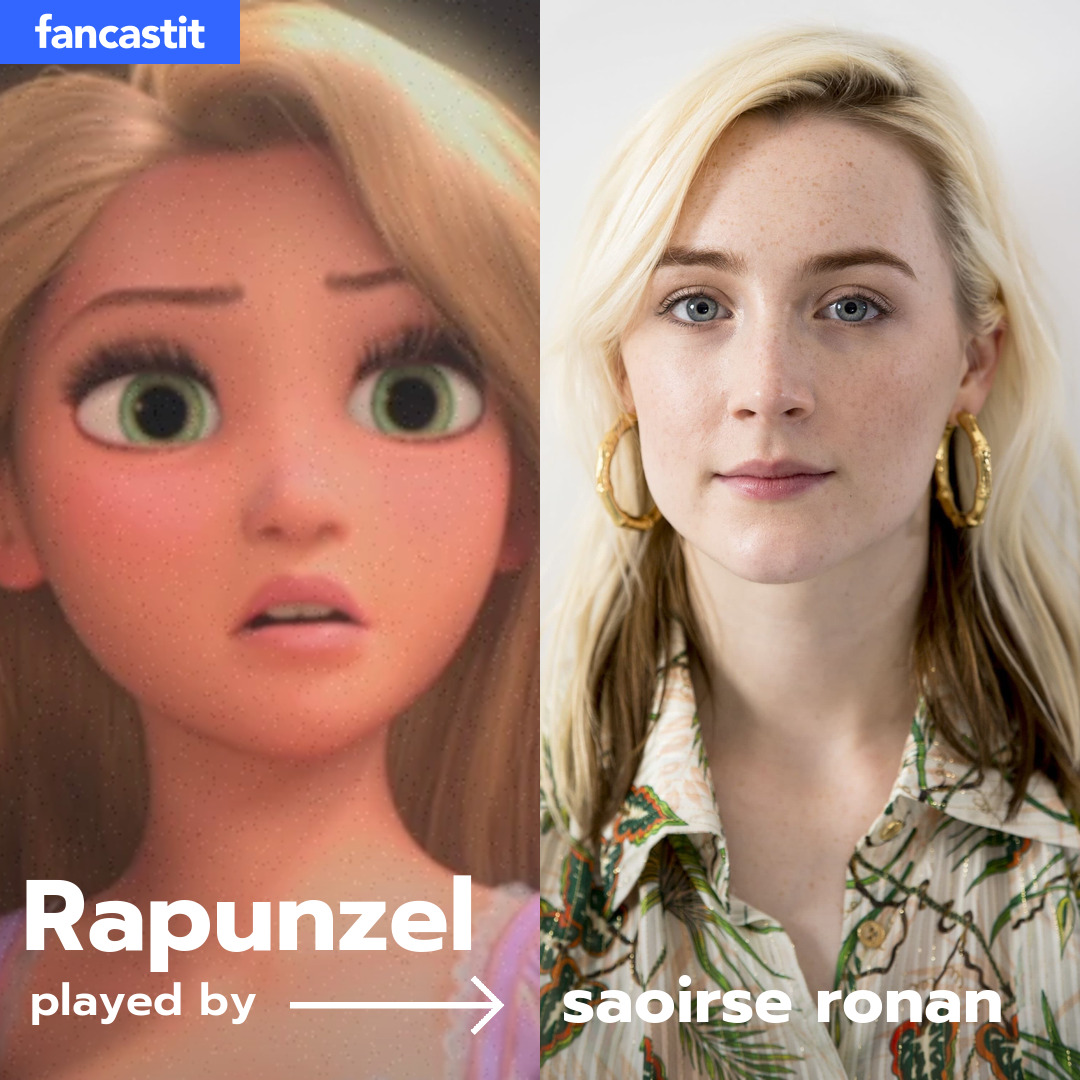Detail Author:
- Name : Prof. Irwin Konopelski
- Username : zhuels
- Email : walker.hellen@morissette.biz
- Birthdate : 1987-02-04
- Address : 2428 Jast Parks Suite 240 Wintheisermouth, TN 64669
- Phone : 252.310.7270
- Company : Schimmel-Koelpin
- Job : Entertainment Attendant
- Bio : Fugit adipisci ut quod odio. Quidem non magnam accusantium blanditiis qui libero dolor.
Socials
instagram:
- url : https://instagram.com/schaefer1987
- username : schaefer1987
- bio : Quod ipsum iusto ad. Sit similique nesciunt itaque.
- followers : 6284
- following : 268
facebook:
- url : https://facebook.com/giovanny_real
- username : giovanny_real
- bio : Perspiciatis explicabo odio consequuntur modi voluptatem quis a.
- followers : 1175
- following : 388
Many folks are quite curious about the new live-action pictures coming out, and one character that gets a lot of talk is Rapunzel. People often wonder just who might be stepping into those famous shoes, taking on such a well-known part. It is a big deal for any performer to bring a beloved storybook figure to life on the big screen, you know, making sure they capture all the bits that fans hold dear.
When we talk about someone "playing" a character, it's actually quite interesting how that simple word, "play," holds so many different shades of meaning. It is not just about showing up and saying lines; there's a real art to it, a deep understanding of what it means to truly "play" something. This idea of "playing" extends far beyond acting, reaching into our everyday conversations and even how we talk about sports or games. It is rather fascinating, is that.
So, as we think about someone bringing a character like Rapunzel to life, it gives us a good moment to think about the very word we use for that act. What does it truly mean to "play" something or someone? We use this word in so many ways, and sometimes, the way we use it can get a little bit tricky, like when we talk about a game or a sport. This article will take a closer look at the many sides of "playing," using some common examples to show you what we mean.
Table of Contents
- Biography - The Nuances of 'Playing' a Part
- Personal Details and Bio Data - What Does 'Playing' Truly Mean?
- Is 'Playing' Always Continuous? Exploring Verb Tenses
- When We Say 'Playing' - The Present Perfect Progressive
- What Happens When We Use 'Played'?
- The Social Side of 'Playing' - With or Against?
- Can 'Playing' Be Ambiguous?
- 'Playing' with Language - A Deeper Connection
Biography - The Nuances of 'Playing' a Part
When we talk about someone "playing" Rapunzel in the live action movie, we are really talking about the many different ways the word "play" works in our daily talk. It is a word that can mean so much, depending on how and where you put it. For instance, you could be asked if you want to "play a game of chess," and that means one thing. Then again, someone might say they "like playing tennis on Tuesdays," which suggests a regular habit, a bit like how an actor might regularly step into a role. It is quite interesting, how a single word carries so much weight, isn't it?
The way we use "play" can sometimes show a choice or an ongoing activity. For example, if someone asks you to "play a game," you might use the word "play" to say no. It is a way of saying you are not joining in that specific activity at that moment. This shows that "play" is not just about doing something fun; it is also about participation and choice. This concept of choice and action, in a way, echoes the choice an actor makes to take on a part, to "play" a character. So, the word "play" itself has a kind of life story, a biography of uses, if you will, that changes with each situation.
Consider the different ways we use "play" when talking about sports. We often say "play" in connection with sports, but the idea of "sport" itself can be broad. There is a clear difference between sports, which are usually organized "games," and other activities. This fine line in what we mean by "sport" means that the word "play" takes on slightly different colors depending on the exact activity we are describing. It is a rather subtle thing, this dance of words and their meanings, you know.
Personal Details and Bio Data - What Does 'Playing' Truly Mean?
To really get a handle on what "playing" means, especially when thinking about someone taking on a character like Rapunzel, it helps to look at the "personal details" of this word. This is like creating a little data sheet for "play" itself, showing its different forms and functions. It is rather like understanding the background of a performer to grasp their craft. Here is a small look at some key aspects of the word "play" from a language point of view:
| Aspect of 'Play' | Description | Example |
| Continuous Action | Refers to an activity happening over a period, still going on. | "I have been playing tennis for five years." |
| Completed Action | Points to an activity that happened and is now done, or its result. | "I have played tennis for five years." |
| Direct Perception | Used after verbs like 'see' to show an action someone observes. | "People often see him play basketball." |
| Ongoing Perception | Used after verbs like 'see' to show an action someone observes as it happens. | "People often see him playing basketball." |
| Social Interaction | Can mean engaging with someone, sometimes with ambiguity. | "Playing with someone" (alongside or against). |
| Language Use | Involves using words in a creative or enjoyable way. | "Playing with words and meanings." |
This table, in a way, gives us a quick look at the many faces of "play." It is not just one simple thing; it is a word with a lot of different jobs in our language. This variety is what makes it so useful, but also, sometimes, a little bit confusing. Just like a person has many traits, the word "play" has many shades to its character, you know, making it quite versatile.
Is 'Playing' Always Continuous? Exploring Verb Tenses
A really common question people have about "play" and "playing" comes up when we talk about how long something has been going on. For example, there is a clear distinction between saying "I have been playing tennis for five years" and "I have played tennis for five years." Both sentences are correct, actually, but they tell us slightly different things about the person's connection to tennis. It is rather like how an actor might talk about their time with a role, perhaps, focusing on the journey or the final performance.
The first sentence, "I have been playing tennis for five years," uses a verb form called the present perfect progressive, also known as the present perfect continuous tense. This particular form tells us that the action of playing tennis started in the past and has been going on without a break, or at least regularly, right up to the present moment. It means that the person continuously played tennis over that period, and, typically, they are still doing it now. It gives a sense of ongoing action, of something that is still in motion, you know.
On the other hand, when someone says, "I have played tennis for five years," they are using the present perfect tense. This version can mean a few things. It might mean they played tennis for five years at some point in the past, and perhaps they do not play anymore. Or it could mean that, over the course of five years up to now, they have had experiences playing tennis, but it does not necessarily mean they have been doing it without stopping. It focuses more on the completion or the existence of the activity at some point, rather than its continuous nature. So, too it's almost, the difference is subtle but important for what you are trying to say.
When We Say 'Playing' - The Present Perfect Progressive
Let us spend a little more time with the present perfect progressive, as it is quite useful for talking about actions that keep going. When someone says "I have been playing tennis for five years," the key idea is that the activity has been a steady part of their life for that whole stretch of time. This tense emphasizes the duration, the length of time the action has been in progress. It paints a picture of continuity, of something that has been happening consistently. It is a bit like watching a long movie that is still running, you know, you are seeing the action unfold over a period. This form of "playing" suggests an unbroken connection to the activity.
This idea of continuous action is quite important. It tells us that the person did not just play tennis once or twice; they kept at it. It could mean they played every week, or perhaps several times a week, but the point is, the activity was a regular part of their life for that entire five-year span. It is a way of showing dedication or a sustained interest in something. So, when we talk about who is "playing" Rapunzel, if we were to use this tense, it would mean they have been continuously preparing for and performing the role, perhaps, for a certain time, showing an ongoing commitment.
What Happens When We Use 'Played'?
Now, let us think about "I have played tennis for five years." This phrasing, using the present perfect simple, changes the focus a little bit. It does not necessarily mean the activity is still happening. It could mean that at some point in the past, for a period of five years, they were involved in playing tennis, and that period is now over. Or, it could simply mean that, up until now, they have had the experience of playing tennis for that length of time, but the continuous nature is not the main point. It is more about the fact that the action has happened, or that the experience exists. It is almost like saying, "I possess the experience of having played tennis for five years."
The main thing here is that the present perfect simple, when used with "played," can imply a completed action or an experience that has occurred up to the present, without necessarily stressing that it is still ongoing. It is a bit like looking at a finished painting rather than watching the artist still working on it. So, if we were to say someone "has played Rapunzel for a year," it could mean their time in the role is done, or simply that they have the experience of having done it for that period, not that they are still actively performing it. It is a subtle but important difference in how we understand the passage of time and action, you know.
The Social Side of 'Playing' - With or Against?
The word "play" also gets interesting when we bring other people into the picture. For instance, when you talk about "playing with someone," that little word "with" can actually make things a bit unclear. It is rather like how an actor might "play with" an idea for a character, which could mean exploring it alongside someone else or perhaps even challenging it. This ambiguity is quite common in language, as a matter of fact, and "play" shows it well.
Consider the phrase "John and Mary played bridge with Martha and..." The "with" here usually means they were playing on the same side as Martha, or perhaps simply in her company, all taking part in the same game. However, the meaning could be ambiguous. Could it mean John and Mary were playing *against* Martha? In some contexts, "play with" could imply opposition, especially in certain games or playful interactions. This is where language gets a little bit like a puzzle, where one small word can shift the whole picture, you know.
What if someone is replaced with the speaker themselves? If I say, "I am playing with him," it could mean we are on the same team, enjoying an activity together. Or, in a more competitive setting, it could mean I am playing against him. The context usually helps us figure it out, but without that context, the phrase "playing with" leaves a little room for guessing. This shows how "playing" is not just about the action itself, but also about the relationships between the people involved in that action, and whether they are working together or in opposition. It is a bit like the dynamics between characters in a story, perhaps, where their interactions define the nature of their "play."
Can 'Playing' Be Ambiguous?
So, yes, "playing" can certainly be ambiguous, especially when you add prepositions like "with." The difference between "playing with someone" and "playing someone" is a good example of this. "Playing someone" often means you are competing directly against that person, like in a sports match or a game of chess where it is one-on-one. You are trying to win against them. It is a very direct, confrontational kind of "play." This is a bit like an actor "playing" a villain against a hero, where their roles are in opposition.
However, "playing with someone" can mean you are on the same team, working together towards a common goal, like "playing football with friends." Or, it can simply mean you are doing an activity in their company, without a competitive element, like "playing in the park with my child." This makes "playing with" a much broader term, covering both cooperative and sometimes even competitive situations, depending on the specific words around it. This is why it is rather important to be clear about what you mean by "sport" when you use "play" in connection with it, as there is a difference between sports, which are usually "games," and other activities that might just be for fun. It is a very subtle distinction, that, in how we understand social interaction through words.
'Playing' with Language - A Deeper Connection
Beyond sports and games, the idea of "playing" also extends to how we use language itself. There is a concept called "language play," which is quite fascinating. One expert, Cook (2000), talked about this idea, saying it involves "playing with words and meanings." This means enjoying the sounds of words, trying out different ways to say things, and even making up new words just for the fun of it. It is a bit like a child making up a new game, you know, they are "playing" with the rules of the world around them. This is a very creative kind of "playing," actually.
Language play also includes "playing in language," which means using language in imaginative ways, perhaps creating fictional words or phrases that might not exist in a dictionary but make sense in a particular context. It is about the sheer joy of expression and communication, finding delight in the sounds and structures of words. This is a very human thing, this desire to bend and shape language, to "play" with it for enjoyment or for deeper meaning. It is almost like an actor "playing" with different voice tones or gestures to bring a character to life, trying out new things.
Furthermore, Cook mentioned "playing with pragmatics," which involves finding enjoyment in the practical side of language use, like understanding jokes, irony, or clever sayings. It is about appreciating how words work in real-life situations, how they can have hidden meanings or double entendres. This kind of "


